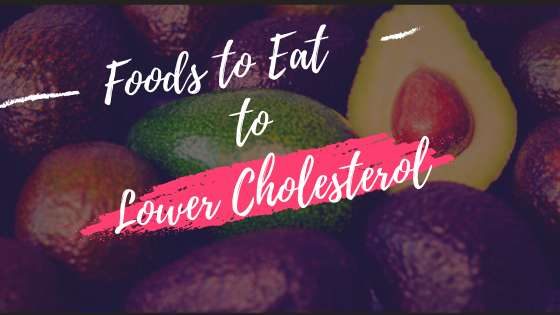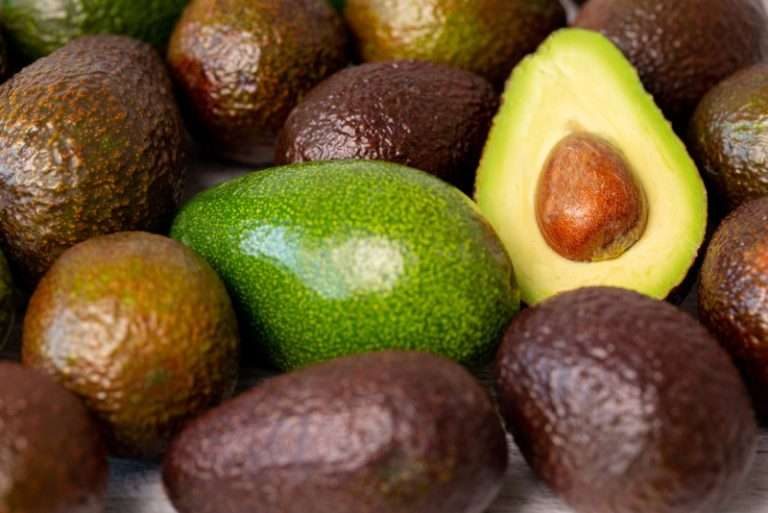In this article, we’ll discuss 19 foods to eat to lower cholesterol. These foods contain ingredients that may help lower cholesterol, and they’re all delicious!
Cholesterol is one of those things that everyone knows they should watch, but few people really understand what it does in our bodies.
It helps us absorb fats and vitamins, and keeps our skin and hair healthy. However, too much cholesterol can cause problems such as clogged arteries, stroke, and heart attack.
Table of Contents
Avocados
Avocados are rich in monounsaturated fatty acids, fiber, potassium, folate, vitamin K, antioxidants, and phytosterols. They also contain lutein and zeaxanthin, two carotenoids that protect eyesight and promote eye health.
Avocados are an excellent source of dietary fiber, which lowers bad LDL cholesterol and triglycerides. Fiber also reduces hunger pangs and improves digestion.
Avocados also contain oleic acid, which has been shown to improve insulin sensitivity and decrease inflammation.
Almonds
Almonds are packed with magnesium, copper, manganese, phosphorus, zinc, iron, selenium, and protein. Magnesium plays a role in muscle contraction and relaxation, and helps regulate blood sugar levels. Copper is essential for bone growth and maintenance, and helps maintain normal thyroid activity. Manganese is involved in the production of red blood cells and enzymes, and helps convert carbohydrates into glucose. Phosphorus promotes healthy bones and teeth, and aids in the absorption of calcium. Zinc is necessary for proper immune system functioning, and helps produce hormones and proteins. Iron is needed for oxygen transport and cell division. Selenium protects against oxidative stress and DNA damage, and is required for the synthesis of thyroid hormone. Protein is used to build muscles, repair tissues, and manufacture antibodies.
Apples
Apples contain polyphenol antioxidants called flavonoids, which help fight free radicals and prevent diseases such as cancer and diabetes. Apple juice contains quercetin, a powerful antioxidant that fights cancer and prevents plaque buildup in the arteries. Quercetin also inhibits the development of certain cancers, and may slow down the progression of Alzheimer’s disease.
The apple is the most popular fruit in the world. Apple contains many nutrients including fiber, potassium, vitamin C, B6, folate, magnesium, manganese, copper, phosphorus, niacin, riboflavin, thiamine, pantothenic acid, iron, zinc, selenium, and beta carotene.
When it comes to lowering cholesterol, apples are a great source of soluble fiber, which helps prevent blood clots and lowers bad LDL cholesterol. Apples also help maintain healthy HDL cholesterol.
Legumes
Legumes include beans, peas, lentils, soybeans, peanuts, and chickpeas. They’re packed full of protein, fiber, vitamins, minerals, antioxidants, and phytonutrients. Legumes help keep blood pressure down, boost immunity, protect against heart disease, and improve digestion.
They’re also great sources of plant sterols, which help lower bad (LDL) cholesterol and prevent plaque buildup in arteries. So next time you’re at the grocery store, grab some canned black beans, kidney beans, pinto beans, garbanzo beans, or lentils.
Berries
Berries are delicious fruits that are packed full of nutrients and fiber. They’re also great sources of antioxidants, vitamins, minerals, and phytonutrients. Berries are especially beneficial for lowering bad cholesterol (LDL) and raising good cholesterol (HDL).
The most common berries include blueberries, strawberries, raspberries, blackberries, cranberries, gooseberries, and currants. Other types of berries include redcurrants, loganberries, boysenberries, elderberries, mulberries, huckleberries, and goji berries.
Cruciferous Vegetables
The cruciferous vegetable family includes broccoli, cabbage, cauliflower, brussels sprouts, kale, collard greens, bok choy, turnip greens, mustard greens, radishes, rutabaga, kohlrabi, arugula, watercress, etc. These foods are rich in glucosinolates (a type of phytonutrient) and help protect against cancer and heart disease. They’re also great sources of fiber, vitamins C and K, folate, calcium, iron, magnesium, manganese, potassium, copper, zinc, selenium, and protein.
When you eat these foods regularly, you may notice improvements in your health. For example, eating cruciferous vegetables helps lower blood pressure, reduces inflammation, lowers LDL (“bad”) cholesterol, increases HDL (“good”) cholesterol, and protects against certain cancers.
Brown Rice
Brown rice is a whole grain, meaning it contains three times more fiber than white rice. Fiber helps lower cholesterol and stabilize blood sugar levels. Brown rice is also higher in B vitamins, especially niacin, thiamine, riboflavin, pantothenic acid, and biotin. Niacin is needed for the production of neurotransmitters and hormones, and is essential for the breakdown of food. Thiamine is critical for carbohydrate metabolism, and is needed for proper liver function. Riboflavin is essential for the production of red blood corpuscles, and is needed for healthy vision. Pantothenic acid is needed for the conversion of carbohydrates into usable energy. Biotin is needed for the production and use of vitamin B12.
But did you know that eating brown rice lowers LDL (bad) cholesterol and increases HDL (good) cholesterol? This makes brown rice a great food to eat to lower cholesterol.
Whole Grains
Whole Grains are rich in fiber, vitamins, minerals, antioxidants, and phytochemicals. Whole grains include wheat, oats, barley, rye, corn, rice, millet, buckwheat, quinoa, amaranth, teff, sorghum, and wild rice.
When you eat foods rich in fiber, you feel full longer and avoid overeating. Fiber helps keep blood glucose steady, reduces bad cholesterol, and lowers triglyceride levels. Eating whole grains may help prevent heart disease, diabetes, stroke, obesity, and certain cancers.

Carrots
If you’re looking to lose weight, eating carrots may be just the ticket. Carrots are rich in beta-carotene, vitamin C, fiber, potassium, folate, magnesium, manganese, copper, phosphorus, iron, zinc, niacin, thiamine, riboflavin, pantothenic acid, and vitamins B6 and K. They’re also loaded with antioxidants, including carotenoids, flavonols, phenolic acids, anthocyanidins, and phytosterols.
The most important benefit of carrots is that they help keep blood cholesterol levels down. Eating them regularly helps prevent heart disease, stroke, diabetes, and some cancers.
Celery
Celery is a good source of fiber, potassium, and vitamin C. Fiber helps lower cholesterol, and potassium maintains electrolyte balance. Vitamin C is needed for collagen formation and helps support the immune system.
Celery helps keep blood pressure down and reduces bad LDL cholesterol (LDL) and triglyceride levels.
Celery is also a good source of folate, which is essential for the production and function of red blood cells. Folate is also important for preventing birth defects, and for prevention of neural tube defects, spina bifida, and cleft palate.
Chia Seeds
Chia seeds are tiny black seeds that grow inside the chia plant. Chia seeds are loaded with omega-3 fatty acids, fiber, antioxidants, protein, and minerals. They’re great for weight loss because they help keep you full longer, making you feel satisfied between meals.
They’re also great for lowering cholesterol because they contain omega-3 fatty acids. Omega-3 fatty acids are essential fats found in fish oil, flaxseed oil, walnuts, and some vegetables. They may be beneficial for cardiovascular health, brain function, joint health, skin health, and many other conditions.
Coconut Oil
Coconuts are filled with saturated fat, but coconut oil is different. Coconut oil is a medium chain triglyceride (MCT), which means it gets stored in the liver instead of being converted into harmful cholesterol. MCTs increase metabolic rate and boost energy levels. Coconut oil is also rich in lauric acid, capric acid, caprylic acid, and myristic acid. Lauric acid is known to suppress appetite, and capric acid is believed to enhance brain function. Caprylic acid is beneficial for the digestive tract, and myristic is useful for treating infections.
Egg Whites
The egg white is a great food to eat because it contains protein, vitamins, minerals, and healthy fats. Egg whites are also rich in choline, which helps maintain brain function and memory. They’re also loaded with vitamin B12, which supports energy production and metabolism.
When it comes to lowering cholesterol, eggs are a great source of dietary fiber, folate, magnesium, potassium, zinc, copper, selenium, phosphorus, and riboflavin. They’re also a great source of omega-3 fatty acids, which help lower bad (LDL) cholesterol and raise good (HDL) cholesterol.
Garlic
Garlic contains compounds called organosulfur compounds (OSCs) that help fight heart disease and cancer. OSCs also reduce blood pressure and improve circulation.
Garlic is a super food that lowers bad cholesterol (LDL) and raises good cholesterol (HDL). Garlic contains compounds called organosulfur compounds that help remove toxins from the body. These compounds also prevent blood clots and may protect against cancer.
Ginger
Ginger has been used as an anti-inflammatory agent for thousands of years. It’s also a natural pain reliever. Ginger can help relieve nausea and vomiting caused by pregnancy or chemotherapy. It can also help alleviate symptoms associated with arthritis and menstrual cramps.
Ginger is also helpful for reducing high blood pressure. It contains compounds called gingerols that relax smooth muscle tissue in arteries, thereby helping to lower blood pressure.
Green Tea
Green tea is one of the most popular beverages on earth. Green tea contains powerful antioxidants called catechins, which have been shown to help prevent cancer and heart disease.
Green tea has been proven to help lower cholesterol and prevent atherosclerosis. It also improves insulin sensitivity, which helps control diabetes.
Kale
Kale is another super food that’s loaded with nutrients like calcium, iron, and vitamin K. Kale is also a great source of beta carotene, which converts to vitamin A in the body. Vitamin A is important for bone growth and immune system support.
Kale is also a great food to eat when you want to lose weight. The fiber content of kale helps keep you feeling full longer so you don’t overeat. Kale is also packed with antioxidants that help fight free radicals, which cause cell damage and contribute to aging
Shellfish
Shrimp, lobster, crab, and other shellfish contain large amounts of iodine, which is essential for thyroid health. Iodine deficiency leads to hypothyroidism, which causes fatigue, depression, and low libido.
Iodine is also necessary for proper development of the nervous system. Shellfish are also a great source of zinc, which boosts immunity and protects your skin from sunburn.
Seafood
Fish is a great food to include in your diet if you want to lower cholesterol. Fish is a great source of protein, omega-3 fatty acids (EPA and DHA), and vitamin D. Omega-3 fatty acids are essential for brain and eye development, while vitamin D promotes strong bones and teeth.
However, fish also contain some saturated fats, which raise LDL (“bad”) cholesterol. So eating seafood should be done in moderation.
In conclusion, foods like almonds, avocados, and fish can help lower bad LDL cholesterol levels. However, these foods aren’t necessarily the easiest ones to incorporate into your diet. Instead, choose healthier options such as vegetables, fruits, lean meats, and low-fat dairy products. These foods contain plenty of fiber and protein without a ton of fat, which means they won’t cause your blood sugar level to spike.
The bottom line is that you want to eat a balanced diet that includes lots of fresh fruit and veggies, along with lean proteins and whole grains. That way, you’ll avoid the unhealthy fats that can lead to high cholesterol levels.
Now that you are aware of the kind of foods to eat to lower cholesterol, make some healthy eating choices for a healthy you.
Source: NIH, National Institute of Health, Pubmed

